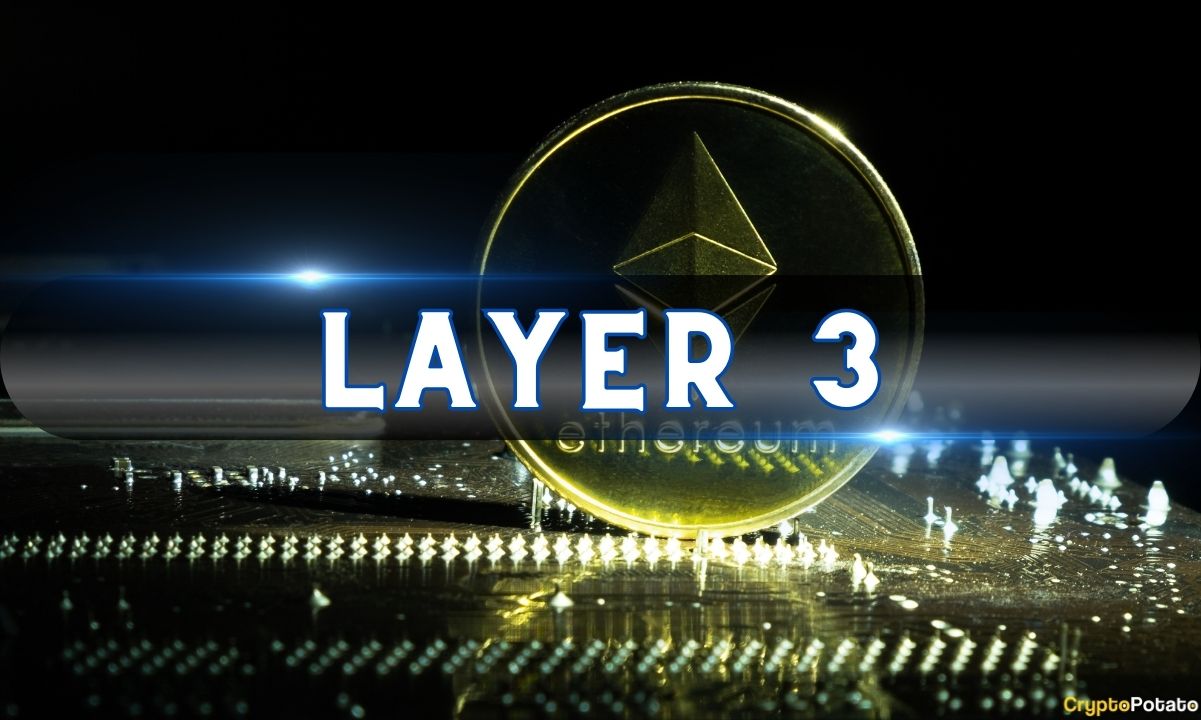Polygon Labs CEO Marc Boiron has voiced his discontent with layer-3 (L3) networks, saying their existence is taking away Ethereum’s value.
His statement comes amid growing excitement around L3 networks such as Degen Chain, which are built on top of L2s to facilitate application-specific dApps that offer solutions such as scaling, costs, and interoperability.
How L3 Networks are Impacting Ethereum’s Value
The Polygon CEO wrote in X that Polygon Labs, a layer-2 scaling network for Ethereum, does not engage with layer-3s as they are unnecessary for scaling existing networks.
Furthermore, he expressed concerns that L3 networks could compromise Ethereum’s security and overall value. Hence, if all L3s settle to one L2, Ethereum will attract no value, bringing a risk to security.
I’ll say the quiet part out loud: L3s exist only to take value away from Ethereum and onto the L2s on which the L3s are built.
*You do not need L3s to scale*
And this is why Polygon Labs does not work on L3s.
— Marc Boiron (@0xMarcB) March 31, 2024
Boiron’s view was, however, met with opposition. One commenter argued that layer-2s on Ethereum “ARE value on Ethereum,” to which Boiron partially agreed but maintained that L2 value does not equate to Ethereum value.
Boiron clarified that Polygon Labs allows developers to build L3s on various platforms, including Polygon networks. In addition, it is focusing on scaling Ethereum while ensuring fair value distribution between Polygon and Ethereum. He reiterated Polygon’s mission to scale Ethereum using parallelization of the EVM and prioritizing privacy, arguing that L3s are not aligned with this objective.
In a post on March 31, Helus Labs CEO Mert Mumtaz’s view aligned with Boiron’s stance by characterizing L3s as essentially centralized servers, settling on other centralized servers (L2s) controlled by multisigs.
Debate Heats Over Layer-3 Solutions
Meanwhile, Peter Haymond, the senior partnership manager at Offchain Labs, challenged Boiron’s perspective and noted several benefits of L3s that do not detract from Ethereum’s value. These advantages include the cost-effectiveness of native bridging from L2 rather than L1, the affordability of proving on-chain, the use of custom gas tokens, and specialized state transition functions.
Arbitrum Foundation researcher Patrick McCorry expressed surprise at Boiron’s viewpoint, saying that L3s offer significant advantages, particularly in enabling L2s to evolve into settlement layers, thus reducing the cost of executing bridges and relying on Ethereum as a global ordering service and final arbiter of settlements.
Surprised by take. L3s seem like a no brainer, especially when it allows the L2 to eventually become a settlement layer (ie executing the bridge is cheaper) and ultimately relying on Ethereum as global ordering service + final judge of settlement.
— Patrick McCorry (,) (@stonecoldpat0) March 31, 2024
The debate around L3s was initially sparked by Ethereum co-founder Vitalik Buterin in late 2022 when he mentioned that these chains would serve a different purpose from scaling, offering specialized functionality. He emphasized that a third layer on the blockchain would only be justified if it introduced unique functions not provided by layer-2s.
Notably, the current leaders within the L3 ecosystem are Orbs, zkSync Hyperchains, Xai, and the recently launched Degen Chain. Out of the current L3 tokens, only four are listed on CoinGecko, showing that the sector is still small.
The post Polygon Labs CEO Criticizes Layer-3 Networks, Claiming They Devalue Ethereum appeared first on CryptoPotato.





